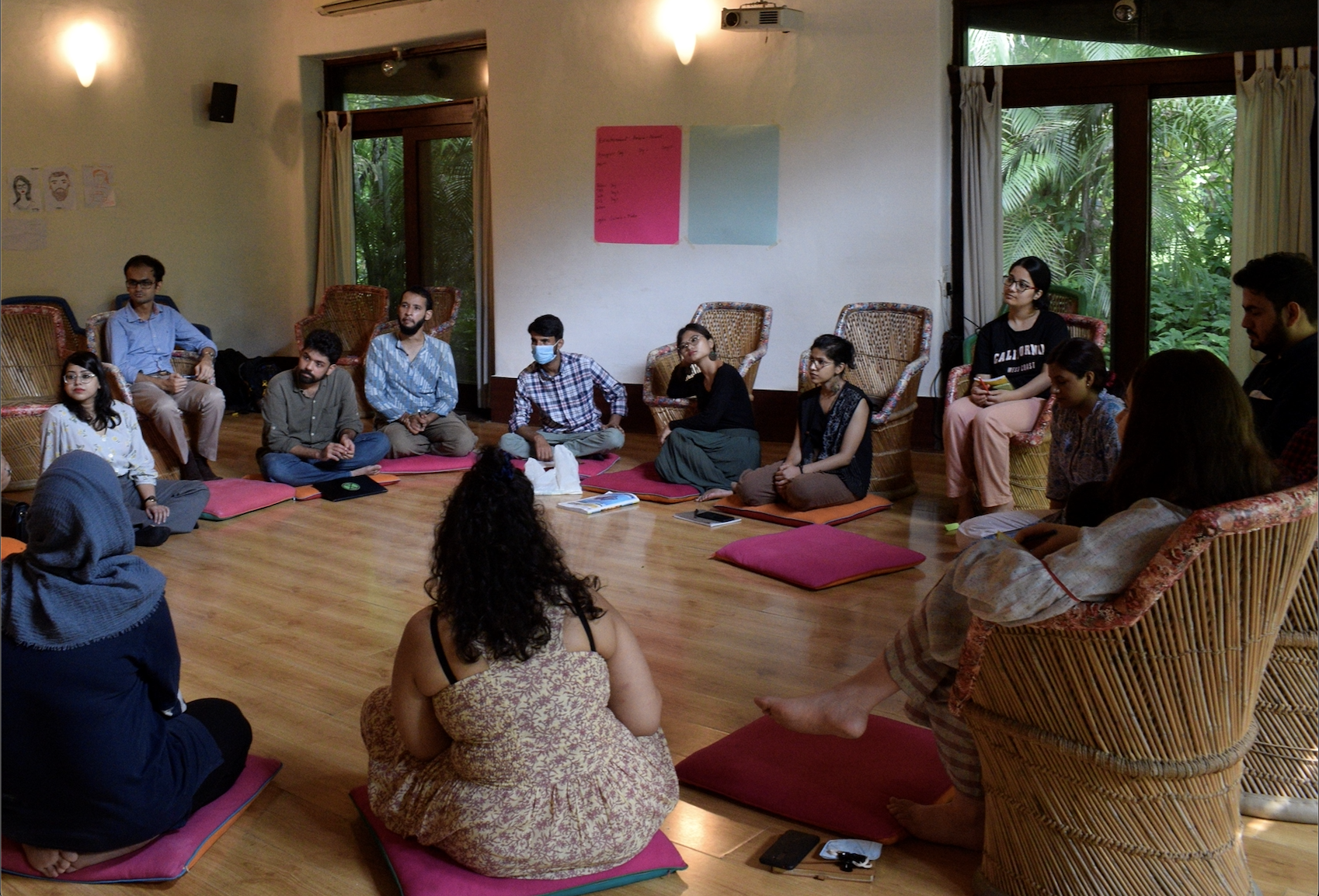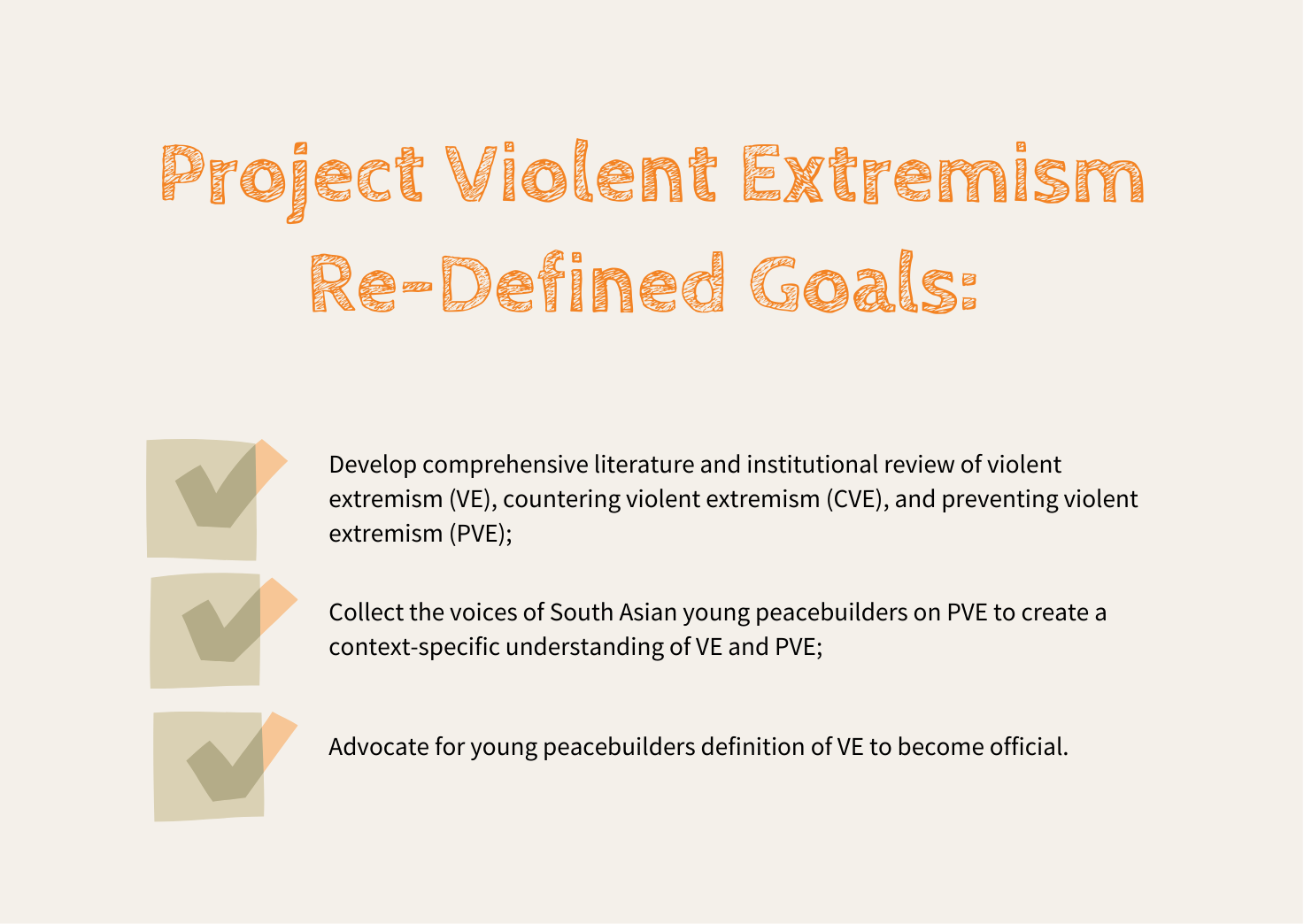SAP Stories 2021
Violent Extremism Re-Defined
In September 2021, Rural Development Society convened the India-based ALLY fellows for their first in-person training and the first in-person activity of the ALLY project since it began in March 2020. During this training, no consensus emerged on what could be defined as Violent Extremism (VE), even after long discussions among the fellows. They realized there exists no ‘official’ definition of VE internationally and no existing non-official definition is inclusive enough to incorporate the experiences and realities of young peacebuilders from South Asia.
With technical and financial support from the ALLY project, five fellows from India – Sameer Yadav, Vinayak Rajesekhar, Katha Ray, Suhaib Salman, and Jigyasa Gulati – seek to create a more inclusive understanding of the experiences and realities of young peacebuilders in South Asia working on VE. Their Social Action Plan project, “VE Re-define,” builds on addressing areas of ambiguity in existing definitions of VE.

“Every year, National Governments, UN bodies, NGOs, and multilateral organizations spend millions of dollars on Preventing Violent Extremism (PVE). However, surprisingly there is no official definition of VE that is agreed upon. This ambiguity often leads to extremist countermeasures on the ground.”
– Sameer Yadav
Not only do they want to clarify what they mean when talking about VE, but the fellows also hope their efforts will improve the efficacy of future PVE efforts.
“Given the vagueness of definition, Countering Violent Extremism (CVE) measures taken to end up exaggerating the existing problems at the place of addressing the root causes of VE or result in misuse of power by the states.”
– Jigyasa Gulati
By and large, VE and related concepts are Western in origin and perspective. The US’s Federal Bureau of Investigations defines VE as the “encouraging, condoning, justifying, or supporting the commission of a violent act to achieve political, ideological, religious, social, or economic goals,” and most “official” definitions come from Western sources. The ALLY project’s research program adopted a youth participatory action research approach and listening-and-learning methodology in developing an analysis report and policy briefs on PVE. The 5 ALLY fellows hope to further these efforts to create localized understandings of VE in their communities.

To accomplish their goal of “re-defining” VE the ALLY fellows launched their project in December 2021. In the first phase, fellows focused on data collection efforts, conducting both literature, and institutional reviews. The second phase consisted of developing policy briefs and reaching out to policymakers and peacebuilders throughout South Asia in January 2022.
In the last phase, fellows used these findings to start a virtual campaign in February 2022 on various social media platforms to simplify the findings in the form of infographics, posts, and short videos to reach a larger audience, primarily youth. The project will also use a participatory method to generate content with the help of youth peacebuilders from South Asia to launch a podcast series.
“With the increasing use of social media platforms among youth, it’s imperative we utilize these platforms to reach youth. Moreover, given the fast-paced life and the attraction of quick bites info, it’s essential to serve the findings with high visual and audio quality to make it engaging and easy to grasp.”
– Suhaib Salman
To learn more about VE Re-definned, please visit their Facebook and Instagram page.
Follow the Network’s Asia Programming on social!
